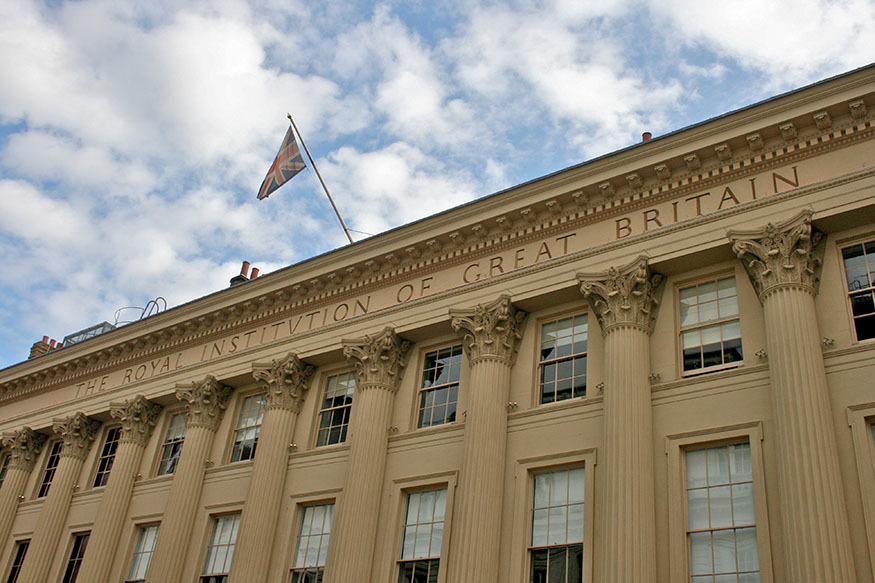Thanks to its famous Christmas Lectures, the Royal Institution tends to pop into the public hive mind each December somewhere around the fifth plate of turkey sandwiches, before receding into the background for the remainder of the year.
But this institute for scientific learning and research has a year-round programme of talks, workshops and exhibitions that are open to all; and although the RI counts many notable academics among its membership, you don't have to be a Nobel Laureate to get involved.

What is the Royal Institution?
Founded in 1799 by a group of philanthropists including experimental scientist Henry Cavendish and MP William Wilberforce, the Royal Institution's aims are to further scientific research and learning. Throughout its 200-year history, the RI has supported the work of 15 Nobel prizewinners — including, most recently, Sir John Gurdon and Shinya Yamanaka in 2012 for their work on stem cells — and facilitated the advancement of many fields of science. No fewer than 10 chemical elements were discovered at the Institution during the 19th century (nine of them by chemist Sir Humphry Davy), and Michael Faraday completed much of his pioneering work on electromagnetism in the building.
Alongside its support for cutting-edge research, public understanding of science has always been at the heart of the Institution's mission. Public lectures and spectacular laboratory demonstrations were a feature of the RI's programme from the outset, and the famous annual Christmas Lectures were introduced by Faraday in 1825. Today, visitors can take part in workshops and short courses, attend talks and live events, or visit the Faraday Museum free of charge.
Visiting the Royal Institution
The Royal Institution is for absolutely anyone who has an interest in science. No qualifications are required to attend workshops or courses, and attending is simply a matter of booking a ticket and finding your way Albemarle Street (a short walk from Green Park station).
Highlights of the busy public programme over the next three months include NASA engineer Anita Sengupta discussing the Mars Curiosity Rover and the future of extraterrestrial exploration (16 June); a talk on the neuroscience of addiction (14 July); and a whiz-banging demonstration of the science behind stage special effects (19 August). Take a look at the RI's YouTube channel for past highlights.
Children and young people are well catered for with a programme of events for ages 7 and above, aimed at both families and school groups. If you don't fancy mixing it with the young 'uns, however, drop into one of the RI's adult-only lates events this summer — the next is on 8 July, focussing on the science of touch, and there's plenty to get your hands on with interactive experiments as well as talks, nibbles and drinks.

An optional membership scheme is open to all — again, no academic qualifications are required. For £75 per year, an adult membership gets you discounts on talks and events as well as 10% off at the RI cafe and entry to the ticket ballot for the popular Christmas Lectures. Got a young budding scientist in your life? A Young Membership costs just £29 and is a great way to encourage under 18s to get their geek on.
Those more interested in the history of science than in its cutting edges will enjoy one of the RI's heritage tours of the stately Grade I listed building, focussing on the architecture of the building and the stories behind artefacts in the Faraday Museum. Tours cost £10 per person for groups of 10-40 people and can be booked by contacting Professor Frank James.
Inspired to find out more? Get up close and scientific with the Royal Institution by heading over to 21 Albemarle Street, W1S 4BS or check out the website.



